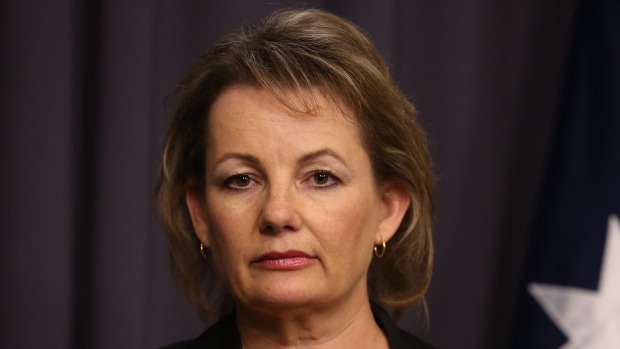
The Turnbull government will pay thousands more Medicare benefits to help patients with out-of-hospital costs under a plan expected to save it millions of dollars, a Senate estimates hearing has been told.
Health Minister Sussan Ley introduced the plan to merge two Medicare Safety Nets into Parliament on Tuesday. The changes will lower the spending thresholds required for patients to access benefits, but cap the benefits payable for individual medical services once this has been reached.
Ms Ley said the plan offered patients up to one-and-a-half times the fee for a medical procedure once they reached their safety net. It was expected to save $266.7 million over five years, which would go into the Medical Research Future Fund.
Andrew Stuart, a deputy secretary of the Department of Health, told Senate estimates that many people would become eligible for financial support for the first time under the changes, which will drop the spending threshold from $638 to $400 for concession-holders, from $2000 to $1000 for non-concessional families and to $700 for non-concessional singles.
The department expected 50,000 more benefits to be paid under the new Medicare safety net. While most people who accessed the Medicare benefits scheme were middle to high-income-earning patients, the broader safety net would create a shift to more concessional users, Mr Stuart said.
Australian Medical Association president Brian Owler said the bill must be voted down, with mental health and cancer treatment patients among those affected.
“The new Medicare safety net arrangements, together with the ongoing freeze of Medicare patient rebates, mean that growing out-of-pocket costs will become a reality for all Australian families, including the most vulnerable patients in our community,” Professor Owler said.
“With higher out-of-pocket costs, patients will delay seeking treatment, or not seek treatment at all.”
Health groups including the IVF Society and the Australian Psychology Society have warned the changes will increase the costs of IVF and psychiatric services.
Mr Stuart agreed to answer questions on the proportion of patients expected to pay more under the new scheme for radiation oncology, IVF and psychiatry services at a later date.
The new safety net, which was first announced in last year’s budget alongside the since-abandoned $7 Medicare co-payment, will take effect next January if passed.
Ms Ley said that under the changes patients would receive more support for medical costs sooner. While benefits for individual services would be capped, the total amount they could claim each year would remain uncapped.
She said this would help simplify a complicated scheme: “This will allow patients to know upfront how much the government’??s contribution towards their medical cost will be before they set foot in a medical consult room and to shop around if there are additional out-of-pocket costs.”
“??It will also restrict excessive fee inflation by medical providers and hopefully encourage current billing practices by some health providers to become more proportionate to Medicare fees.”
A spokesman for shadow health minister Catherine King said Labor was considering the changes “to ensure they do not adversely affect these vulnerable patients”.
